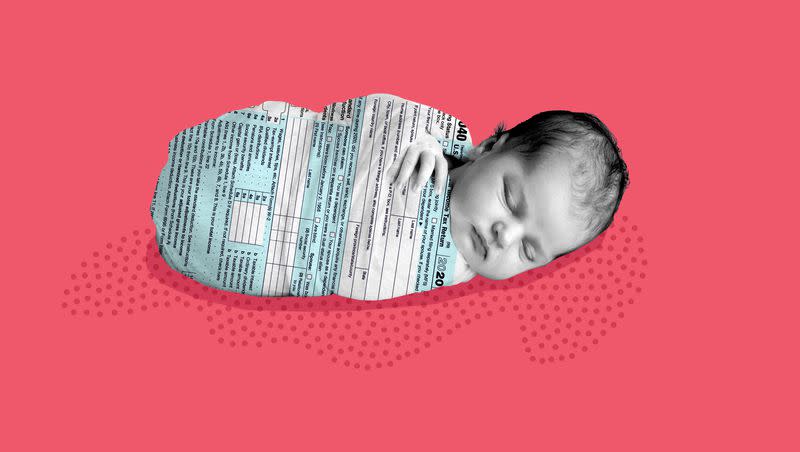Child tax credit passes House, but road through Senate may be rough

The U.S. House passed a bill that enhances the child tax credit and also boosts several business tax breaks. But the bill, which bestows tax breaks worth roughly $79 billion, must still find favor in the Senate to become law.
The Tax Relief for American Families and Workers Act made it through the House on a 357-70 vote Wednesday in what The New York Times called the “House’s first major bipartisan bill of the year” to pass. The Times said 47 Republicans and 23 Democrats voted against it.
Despite the very real potential hurdles in the bill’s future, those watching Congress hail passage in the House as an unexpected breakthrough, given divisions and inertia when it comes to passing bills of consequence, according to The Associated Press.
The bill was seen as offering something important to members of both parties: Expansion of the child tax credit is a priority for Democrats, while Republicans have been anxious to see restoration of business deductions on new equipment and breaks for research and development.
The legislation resulted from a compromise reached earlier in January that was negotiated by the leaders of Congress’ tax writing committees: House Ways and Means Committee Chairman Jason Smith, R-Mo., and Senate Finance Committee Chairman Ron Wyden, D-Ore., as Deseret News previously reported.
Smith touted the measure as “pro-growth, pro-jobs and pro-America.” He added, “It’s a strong, common sense, bipartisan step forward in providing urgent tax relief for working families and small businesses.”
After its passage, Rep. John Curtis, R-Utah, issued a statement saying, “I was proud to support the Tax Cuts and Jobs Act as one of my first votes in Congress, which helped Utah’s families keep more of their hard-earned money and allow businesses to invest in their communities. The provisions in this bill build on that success and I am pleased to support its passage.”
His colleague, Rep. Blake Moore, R-Utah, tweeted that passing the bill “will be one of the most productive, positive and pro-growth decisions this Congress will make. I am excited this critical package passed the House and is on its way to the Senate.”
Enhanced refundability
The existing child tax credit is $2,000 but it’s only partially refundable ($1,600), meaning that even people who don’t owe enough in taxes can claim that portion. Though it’s much smaller than the pandemic-era child tax credit, which was also paid for a time directly to families in monthly chunks, the bill increases the amount that’s refundable and thus available to the lowest-income families. In 2024, $1,800 would be refundable; the amount would rise until it’s all refundable.
Related
Families would still have to earn at least $2,500 annually to be eligible for the tax credit, maintaining a work requirement that conservatives have deemed important.
It also eliminates the tax cut’s penalty for large families.
The bill, if passed in both the House and Senate, would be paid for by ending the employee retention tax credit, a pandemic-era measure that was supposed to help employers keep their workers, but that has been plagued with claims of fraud.
The nonpartisan Tax Policy Center estimated that the child tax credit expansion would provide households that qualify for the benefit an average tax cut of $680 more in the first year, per the AP.
The bill also boosts a tax credit for construction of affordable housing, a measure designed to add about 200,000 affordable housing units around the country. And it allows small businesses and individuals hit by disasters to claim more tax relief.
On the business side, it allows immediate deduction for research and development costs instead of spreading them out over five years and ends double taxation for those operating in both the U.S. and Taiwan, among other things.
Rocky road ahead?
The path forward is unclear and is likely to be very bumpy. The Times reported that “in a sign of the political hurdles that are complicating the bill’s path, (House Speaker Mike Johnson) brought it to the floor on Wednesday under special expedited procedures that required a two-thirds majority for passage. The maneuver allowed him to steer around Republicans who could otherwise have blocked the bill over their policy and political objections.”
Reaction to the bill’s features has been reminiscent of the childhood classic “Goldilocks and the Three Bears.” Tasting the bears’ bowls of porridge, Goldilocks found one “too hot,” another “too cold” and a third “just right.”
Democrats who opposed the bill said it didn’t do enough to help families, while excessively helping businesses. Some Republican opponents said it does too much and expands welfare unacceptably.

